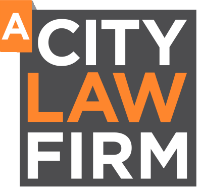
What are the key things as a business owner you should be doing now to come out on top post-pandemic? What are the key things you should be doing now to plan the return of your team?
Issues to address now to come out fighting after COVID-19
Review your staffing arrangements
It is key for most businesses to retain its pool of talent but also to keep its head above water.
If you can furlough staff who are not required and keep them motivated to invest in you when they return then this is a positive step for a business. However, we appreciate that this is not always the case. If you are going to furlough anyone or amend their employment contract to allow for short term working or layoffs, then this needs to be agreed with the employees and properly documented. A Furlough Agreement should be executed between an employer and an employee.
There are several ways to try and incentivise furloughed staff if you hope that they will re-join your workforce. One may be to top up their salary above that paid to the employer by the Government. It is also important to agree annual leave and whether this can be taken on furlough. Furlough allows an employee to still undertake training. You may, therefore, want to encourage an employee to upskill or undertake training during this period as an investment for your business and their future.
Staff may agree to return on a part-time basis, and from August 2020 this is covered under the job retention scheme. We advise a return to work interview to engage staff, address any concerns and set clear policies and procedures.
Renegotiate your lease or rent payments
The Coronavirus Act 2020, came into force on 26 March. Businesses were temporarily protected against being evicted if they could not pay their rent. It came as a relief for tenants in commercial properties whose businesses and cash flow have been significantly affected. However, this does not mean your terms or rent have been waived or suspended. Some freeholders are using alternative means to litigate against their tenants.
You must continue to comply with the terms of your lease. Our advice is to try and negotiate reduced or deferred rent to avoid litigation. It is vital you are aware of personal implications, especially if you have a personal guarantee. Preserving relationships when you return the office is something to consider, especially in terms of your deposit and rent review dates.
If you can negotiate terms or a break, seek legal advice immediately to record this by way of a side letter. Commercially speaking, it is likely that some sort of deal could be struck with a landlord. The alternative they risk is having an empty premise and trying to find new tenants in a challenging climate. However, you need to defend or address and statutory demands if presented to you.
All tenants should look at whether they qualify for business rate relief or a government grant. Finally, unless a lease is due to end or there is a right to break the lease, it is unlikely a tenant will be able to terminate their lease just using Covid-19 as a reason. While it could be argued that that the coronavirus outbreak is a force majeure event, meaning an act of God or something outside of your control, there would have to be a specific clause within the lease allowing this.
Review contracts, preserve relationships but protect against breaches
a. What if you cannot meet your contractual obligations or deadlines
At this juncture, you must check your contracts. You need to read the small print carefully and double-check what you have contractually agreed to do and by when.
If you cannot perform your side of the bargain and have a Force Majeure clause, you may be able to terminate the contract. However, equally, you run the risk of your customer or supplier also trying to break the agreement. You must exercise any right to break or any Force Majeure clause correctly. If not, you are likely to cause a material breach of contract for wrongly invoking termination. This may result in a breach of contract claim against you.
You should take specific advice on whether you qualify for force majeure even where there is a relevant clause since the acts themselves may not be sufficient, such as where your part of the contract can be performed remotely.
b. Trying to preserve a contractual relationship at a difficult time
Any contract can be varied with consent. A good idea where there may be difficulties performing the contract is to try and approach the other party to see if something can be agreed to change the terms. If you both agree to the variation, then it will take effect. However, it should be properly documented to ensure that what has been varied is clearly set out. We always encourage early communication to try and preserve relationships as compromising or discussing how to address the issue early may allow you to secure future business rather than burning your bridges.
When looking to vary a term of a contract, you should check to see if it stipulates that the contract can only be varied in writing. It is important that the terms of the contract with regards to variation are followed as carefully as possible. This is to protect you from being liable for breach of contract.
c. Insurance
Always check your policy to see what you are covered for and when. We have unfortunately seen many insurers denying claims. It is important that you carefully scrutinise your terms and notify them in good time.
Planning for a return to work
What are the key things you should be doing now to plan for your workforce returning to the workplace post lockdown?
Plan, plan, plan!
We advise clients to have a documented risk assessment or plan and policies to communicate this to staff and clients.
You must have comprehensive homeworking policies in place. Invest in the right infrastructure to enable effective homeworking. The current UK Government guidance remains that people should work from home where possible. Even as the lockdown eases, homeworking is likely to be encouraged for some time. This is not possible for all sectors, so the Government has produced a 50-page guidance document. It includes steps for employers to take for those returning to the workplace. This can involve staggering days and times, offering flexibility and plans to mitigate health issues.
One key issue is travelling to work. The UK Government wants to reduce the number of people on public transport at any one time. The guidance includes introducing staggered work times, rotas or days. As employers put plans into action, employees should be consulted at every step and treated fairly. You need to be careful not to discriminate, directly or indirectly, against someone because of the decisions you take at this time. No change should be forced on any staff, or you will risk a constructive dismissal claim. Changes to key contractual terms, such as hours and contractual shift patterns, should only be done with consent.
However, with effective dialogue, staff should feel empowered to make their own decisions about returning to the workplace. Another consequence of the changes may be that greater flexibility will increase productivity. Business owners may see an increase in the volume of work produced, a happier workforce and potentially personnel to cover a longer period of the day to reach clients and customers.
Social distancing the workplace
Social distancing is here to stay, at least for the foreseeable future. Employers need to consider how employees can get to work and operate there safely as well as their customers’. Employment law and health and safety protection provide employees with significant protection. All employers with more than five employees need to carry out a coronavirus risk assessment.
However, we recommend that all employers should be doing this to evidence what they consider to be the key health and safety issues affecting their business. Businesses looking to reopen their workplace should update their policies and convey these to their employees in a transparent manner. We would also strongly suggest that staff be allowed to discuss any concerns they may have with HR or management.
Employers also need to be mindful about whether PPE must be provided. The Personal Protective Equipment at Work Regulations 1992 stipulates that any employer must provide PPE at its cost if there are no alternatives available to adequately safeguard the employee. Employers also have an obligation to ensure that the PPE is being used properly.
Clean workplaces
We expect an increase in the level of cleaning required for a workplace to reduce the risk of contamination for staff and visitors. Businesses will be under scrutiny when they start bringing employees back to work. This will be focused on how they manage the health and wellbeing of their staff.
Carefully review all contracts with your cleaning companies and monitor their performance on an ongoing basis. Something as essential for your business as its cleaning may be brought under the spotlight should the steps you have taken to protect your staff be called into question. We would suggest that such contracts be carefully reviewed to ensure you are appropriately protected.
The key for everyone is careful planning, regular assessment, consulting and communicating with others so that concerns are properly addressed. Clear policies must be communicated and need to be practical and agreeable.
Be prepared for pressure on cashflow
As loan repayments start, financial commitments that have been paused restart and the deferred sums become due. It is likely to have a knock-on effect on a business’ cash flow. We suggest business owners forecast on month by month basis to where they are financially. This allows the business to create a budget and consider repayment and contingency plans that should be regularly reviewed and updated as required.
It is important to manage credit carefully and take swift action should there be a default. Look at alternatives such as taking non-refundable deposits or payment in advance for work to be undertaken. The courts are experiencing a significant backlog due to lockdown. Enforcing your contractual rights may take longer. This will cause more risk of a creditor simply closing their business. Offering settlements and protecting your business is vital as you come out of the lockdown.
Summary
All business owners should take steps to safeguard their business and stand it in good stead for the future. It may be a rocky path for some businesses. Careful planning and putting in place effective measures now will help you to weather the storm. It may even allow you to prospect in the emerging new climate. Our team have been renegotiating terms and documenting variations to contracts and policies to ensure our clients come out on top.

Karen Holden is the Managing Director & Founder of A City Law Firm who practise both commercial law and litigation, having been admitted to the roll in 2005. If you require further advice or assistance, please do not hesitate to contact [email protected]
A City Law Firm Limited is a leading entrepreneurial law firm in the city of London, with a dynamic and diverse team of lawyers. It was awarded most innovative law firm, London 2016 and Business Law firm 2017. They specialise in start-up business law, the tech industry, IP and investment.

























